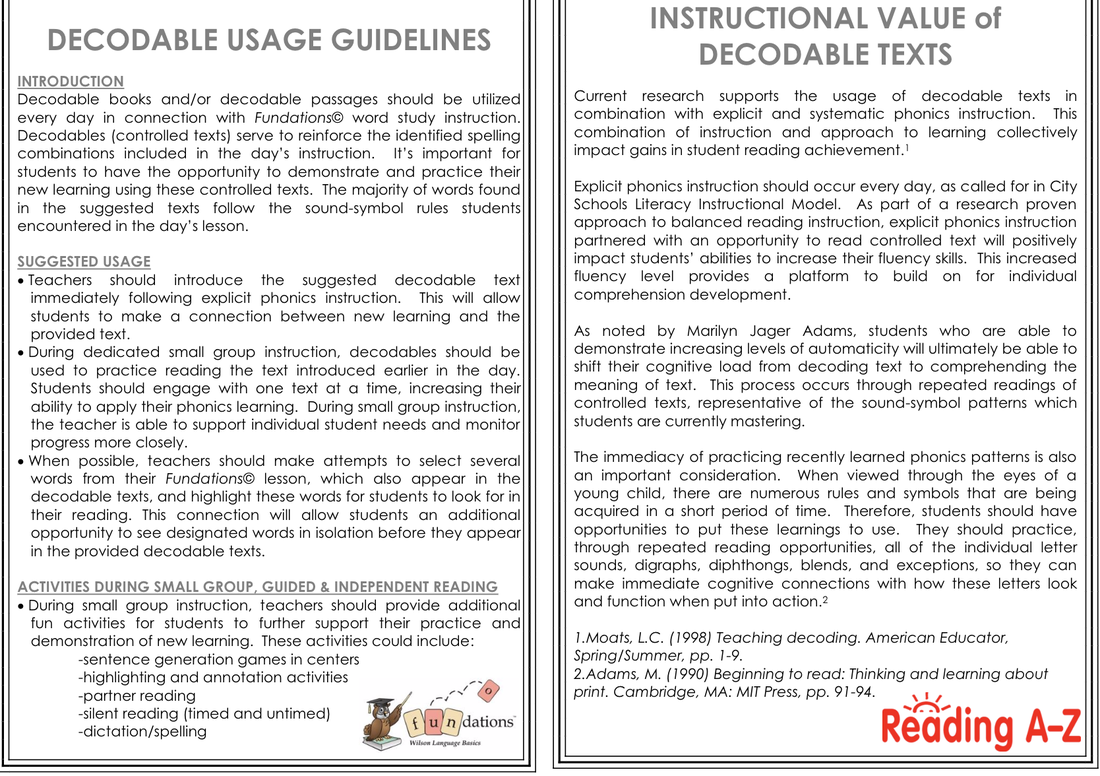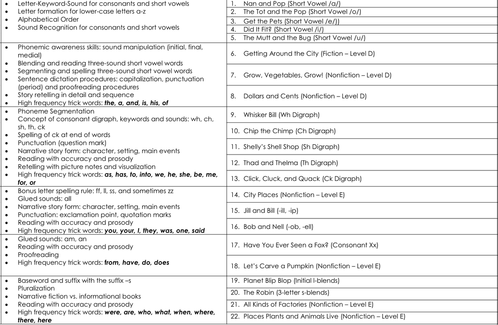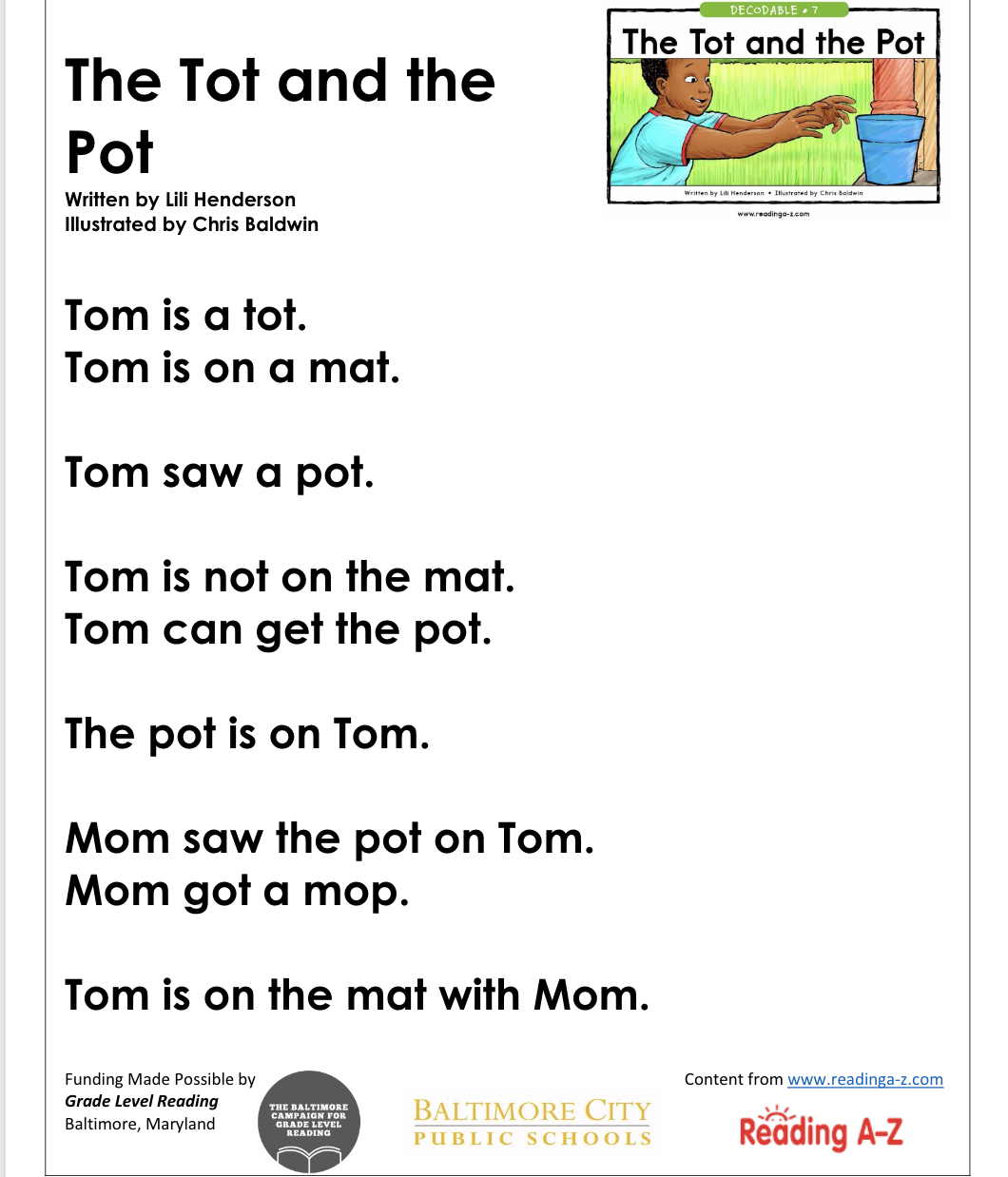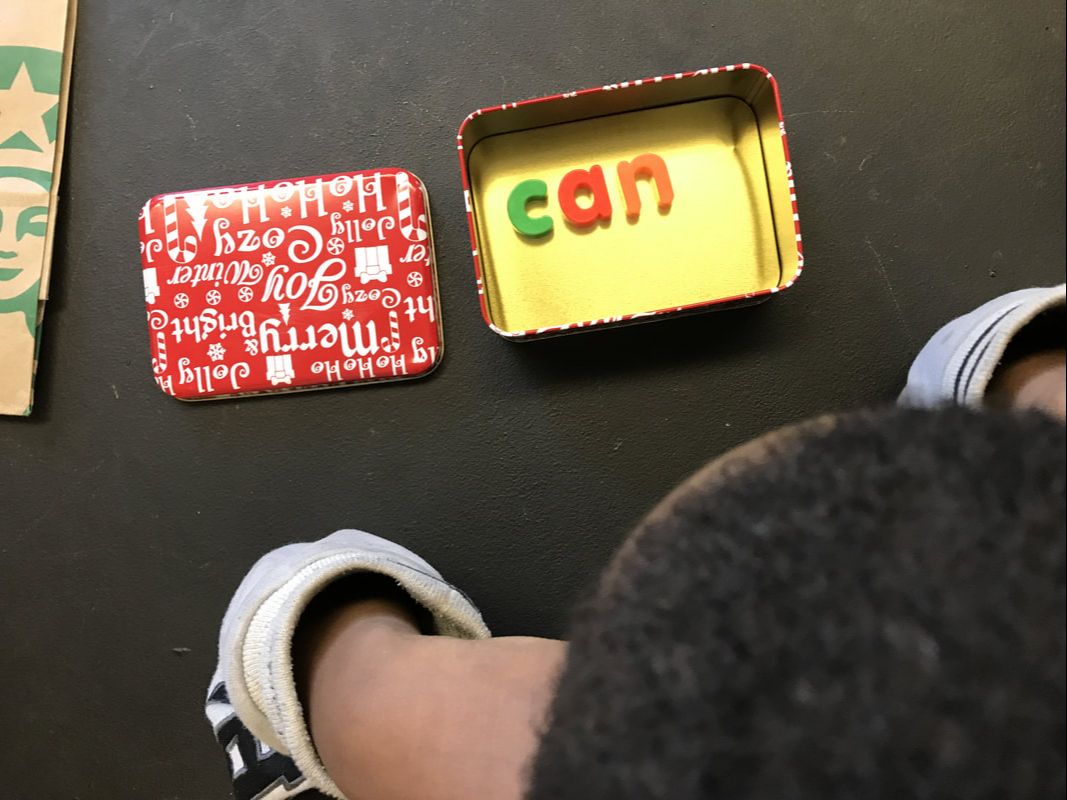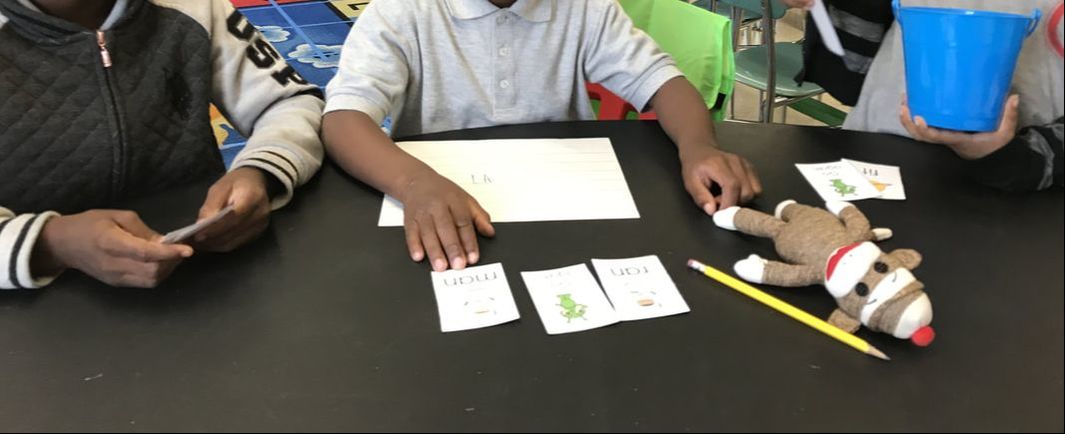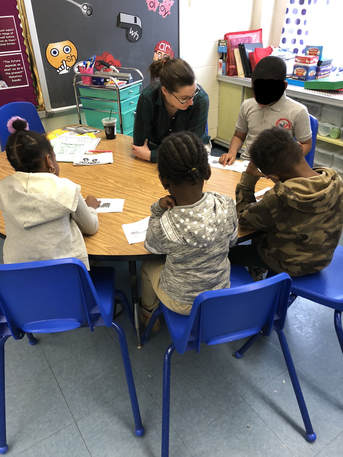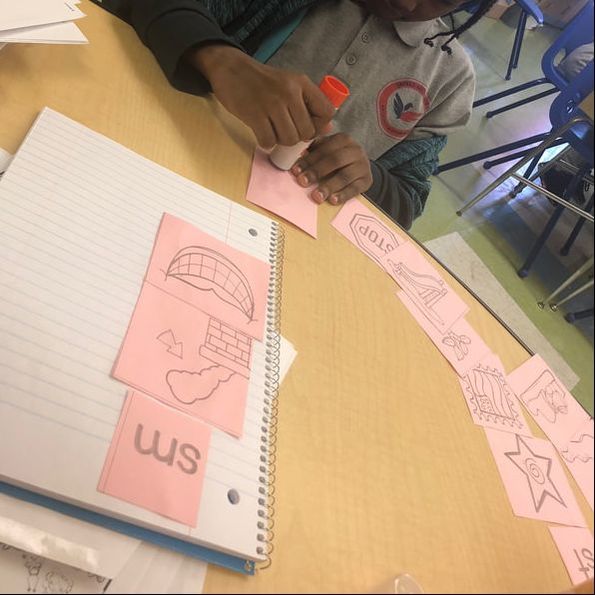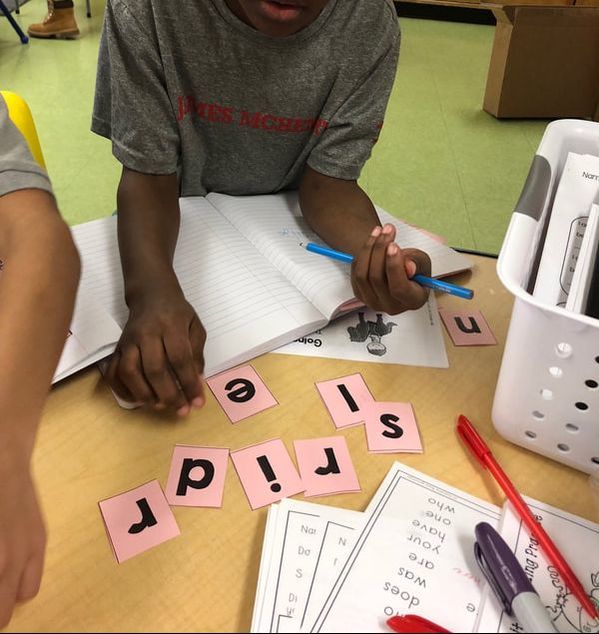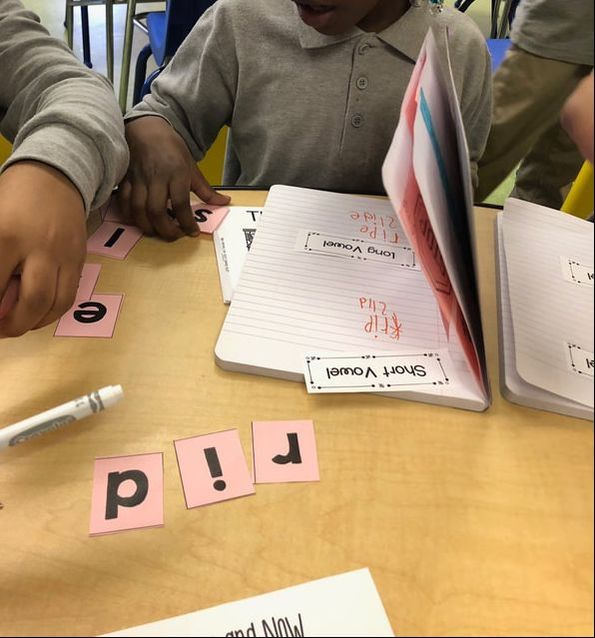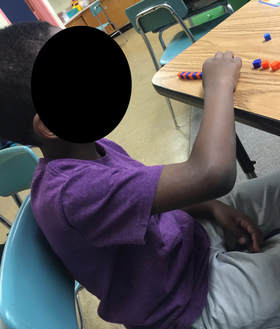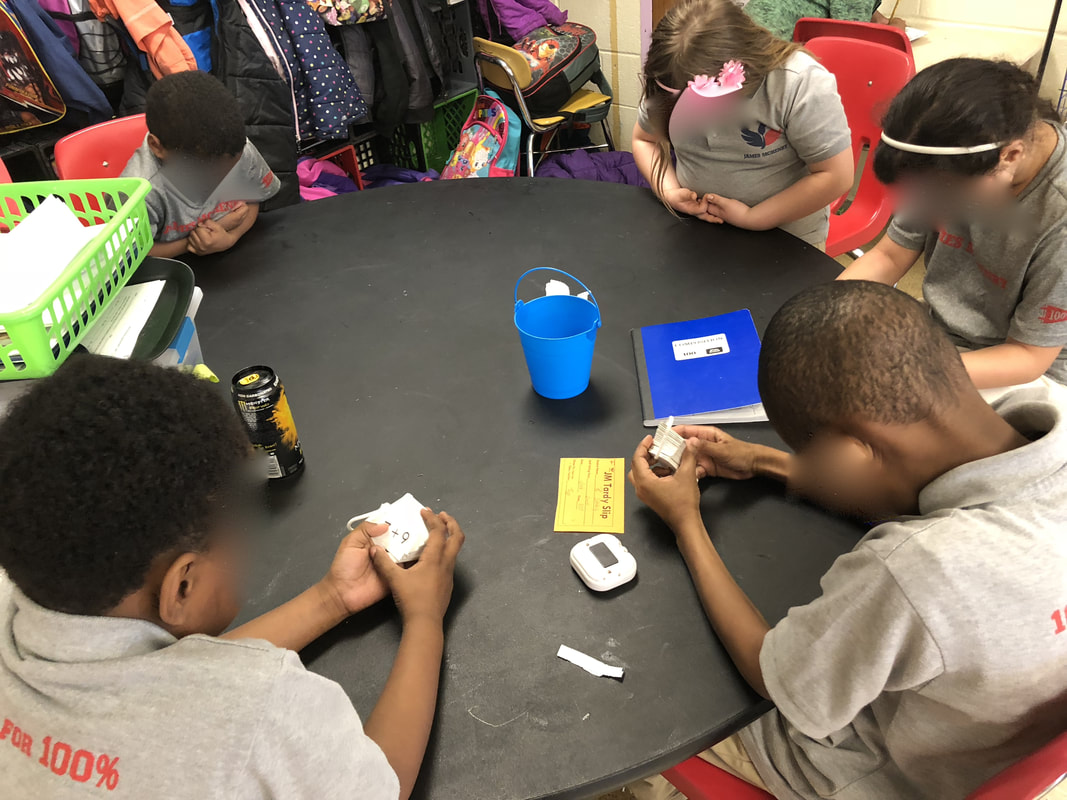Small Groups
Small groups are a way for me to meet with my students and teach them the skills at their reading and math levels. These groups allows me to differentiate the work they are doing on their own as well as focus on a teacher led lesson when I am meeting with no more than six students at a time to work on reading, writing, phonics, math, etc.
Guided reading allows students to have small and personalized instruction to work on developing their reading, comprehension and specific skills. Fundations provides learning of decoding skills in a whole group fashion as well as a section called "story time" that allows for whole group reading and annotation of the same reading no matter what the skills of a student are. Although this allows for whole group instruction and focus, Fundations and RAZkids provide resources that allow for focused guided reading groups and lessons that focus on the needs of individuals and small group instruction. This means that maybe students need to focus on reading with high frequency words or sight word reading. Maybe others need to focus on reading that is based on their reading level (aa-z) and others need to focus on patterns in reading.
During guided reading, I am able to work with students in a strategy that they function best in. Some groups work in simply working through reading and comprehension skills. Other groups may work on simple sight word identification and spelling in alternative ways with white boards and magnetic letter. One group may focus on the patterns that are being practiced on during Fundations such as digraphs, glued sounds, long versus short vowel sounds, etc.
Guided reading allows students to have small and personalized instruction to work on developing their reading, comprehension and specific skills. Fundations provides learning of decoding skills in a whole group fashion as well as a section called "story time" that allows for whole group reading and annotation of the same reading no matter what the skills of a student are. Although this allows for whole group instruction and focus, Fundations and RAZkids provide resources that allow for focused guided reading groups and lessons that focus on the needs of individuals and small group instruction. This means that maybe students need to focus on reading with high frequency words or sight word reading. Maybe others need to focus on reading that is based on their reading level (aa-z) and others need to focus on patterns in reading.
During guided reading, I am able to work with students in a strategy that they function best in. Some groups work in simply working through reading and comprehension skills. Other groups may work on simple sight word identification and spelling in alternative ways with white boards and magnetic letter. One group may focus on the patterns that are being practiced on during Fundations such as digraphs, glued sounds, long versus short vowel sounds, etc.
Above is an example of one of the decodable texts that follows the guidelines that I have used to work with my group that struggles with vowel sounds. All the sounds that are in this decodable text are either three sound words and are easily decodable or they are sight words that, at this point, should be able to recognize by themselves. If they are unable to recognize these sight words, I would work to make sure we are using magnets to create and spell the words so they can begin to memorize and recognize the words in any format.
Guided reading is a strategy that I use with students to work on improving their reading level through strategies and words that are appropriate for their current reading level. This allows me to work with students at their level and pay attention to their more specific needs by finding books that follow and highlight the skills they need when it comes to trick words, phonics and comprehension skills. It also gives students an opportunity to feel more successful in their own group reading with students who are on similar levels. Below are two examples of guided reading lesson plans that I use with my students. On the left hand side is the plan for my emergent readers and the one on the right is for my students reading between levels D-I.
|
|
|
Below you can see pictures of a couple of the different groups that I work with. All three groups are reading different books as they are on different levels and need different skill supports.
Not only is small group instruction important within reading, but it is important to have the same balance during our math block. I meet with different math groups every day that are on different levels. While I am meeting with students in small groups who need interventions like Do the Math, focus strategy lesson and reinforcement of the lesson of the day or unit we are in or simple awareness of fast facts and one-to-one correspondence, other groups are rotating through their differentiated groups. Below on the left, you will see a group who needs more assistance and hands-on learning when it comes to math. On the right, you can see a group in their station and focusing on their fast facts with subtraction cards that have self check on the bak.
How does this help my students?
While whole group teaching addresses the grade level standards and needs, the guided reading and small groups are created and planned around the needs of each individual students. Allowing time to meet with students during small groups allows me to create plans for reading and reading skills that are needed based on their assessments and observations throughout the day. Bringing the students to a group on their level allows the chance for students to be successful and gain confidence in what they are making strives in. Not only this, but it allows students and I to work on the relationship to allow them to feel more comfortable in making mistakes and confiding in my for when they need assistance.
